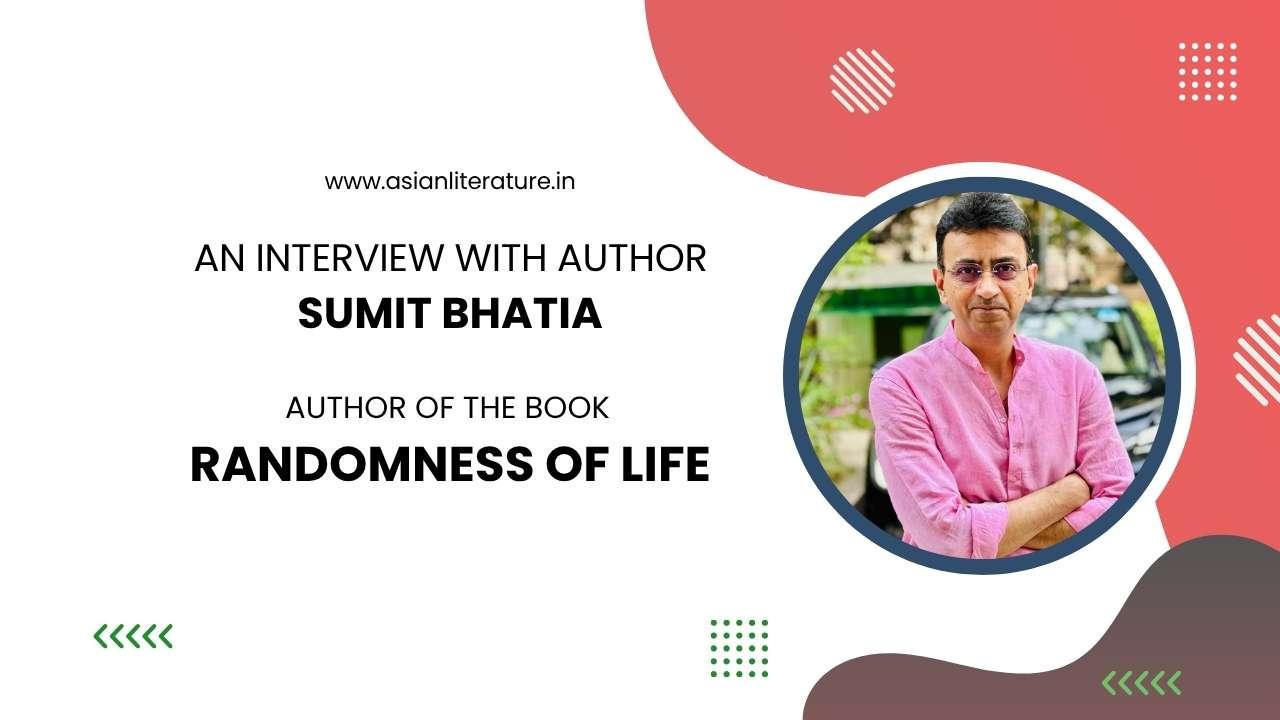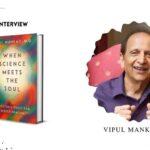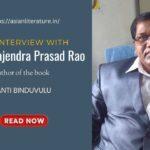
Everyday moments, tender truths, and universal emotions — meet the poet behind Randomness of Life.
Title: Randomness of Life
Author: Sumit Bhatia
ISBN: 9789363550506
Publisher: Evincepub Publishing
About the author: Sumit Bhatia is a storyteller of the everyday—capturing fleeting moments and emotions through poetry. With a love for writing and an ear for the unsaid, he weaves deeply relatable reflections on love, memory, identity, and presence. Randomness of Life is his heartfelt attempt to honor the soft, often overlooked spaces where real life happens. When not writing, Sumit can be found observing the world through the lens of wonder, quiet thought, and a deep love for meaningful connection.
Question – When did you first realise you wanted to become a writer?
Answer – I’ve been scribbling down thoughts for as long as I can remember — in diaries, on scraps of paper, even in the margins of work notes. But it was after publishing my first book on Amazon a few years ago that I truly realised this was more than a hobby. That experience made me want to share my words with people all over the world.
Question – How long did it take you to complete Randomness of Life?
Answer – The book took about 12–18 months to take shape. Some poems had been with me for years, quietly waiting. Once I settled on the theme, I rewrote older pieces, wrote many new ones, and spent long nights arranging them into a journey that made sense. The editing and refining — that’s what took the most time.
Question – Do you write more with your heart or with your mind?
Answer – The heart writes first — raw, unfiltered, emotional. The mind comes later, shaping the flow, finding the right words, making sure it all holds together. For me, poetry lives in that space where heart and mind work together.
Question – How do you handle writer’s block?
Answer – When the words don’t come, I step away. Sometimes it’s a walk, cooking a meal, or simply watching the rain. Writing needs clarity, and when the mind is crowded, forcing it never works. I’ve learned that if you give the words space, they return.
Question – Silence or music?
Answer – Mostly silence — the kind where you can hear your own thoughts forming. But a line may arrive when I’m listening to a song, or in the middle of a paragraph in a book, and I’ll have to drop everything to capture it.
Question – Who did you write this book for?
Answer – For everyone. Different poems will speak differently depending on where you are in life — whether you’re a teenager, a parent, or a grandparent. But I believe anyone can find a piece of themselves in these pages.
Question – How do you stay true to your voice in emotional poetry?
Answer – I write in free verse because it lets me breathe on the page. I’m not chasing rhyme — I’m chasing truth. My words come out as I’d speak them, but I also imagine the reader on the other side. I want them to feel like the poem was written for them.
Question – What’s the role of poetry in saying hard things?
Answer – Poetry is a bridge between the unsaid and the understood. It can hold grief, joy, hope — all in a handful of lines. For me, it’s the safest place to put feelings that are too heavy or too fragile to say out loud.
Question – Were you ever nervous about sharing personal thoughts?
Answer – At first, yes. Opening up on the page feels like opening a window into your life. But once I started, I realised how many people feel the same way. Vulnerability isn’t weakness — it’s connection.
Question – How did you feel when you held your book for the first time?
Answer – It felt surreal. The weight of it in my hands, the smell of fresh pages, seeing my words bound together — it was a moment of deep gratitude. For the journey, for my family and friends who supported me, and for the quiet hours that built it.
Question – If you could describe your book in three words…
Answer – Tender. Honest. Universal.
Question – Do you enjoy reading your own poems once they’re published?
Answer – Mostly, I move on to new work. But sometimes I revisit old poems — not to critique, but to see if they still speak to me in a new way. Often, they do.
Question – How do you hope your poetry connects with readers in tough times?
Answer – Life isn’t always tough or easy — it’s simply life. We can’t control everything that happens, but we can control how we respond. I hope my words help people pause, reflect, and maybe even find comfort in life’s unpredictability.
Question – What feedback has touched you most?
Answer – When readers tell me they’ve found their own stories in my poems — that’s everything. It means the book isn’t just mine anymore; it’s theirs too.
Question – If someone’s never read poetry, why start with Randomness of Life?
Answer – I don’t think anyone has never read poetry. We’ve all heard nursery rhymes, studied verses in school, listened to songs — all poetry in some form. But if Randomness of Life is the first poetry book someone picks up, I believe they’ll see themselves in at least a few of its 50 poems. These are stories about birth, death, and the random, beautiful moments in between.

